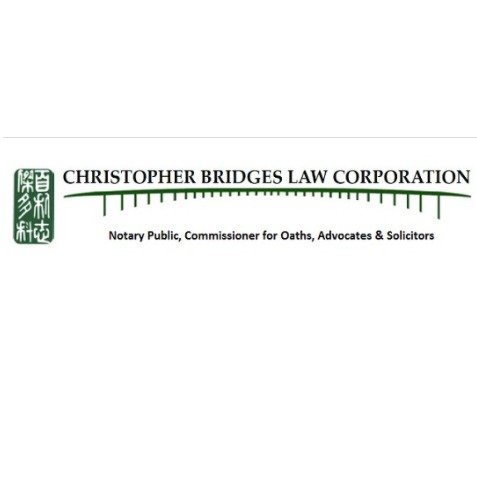Best Patent Lawyers in Alexandra
Share your needs with us, get contacted by law firms.
Free. Takes 2 min.
List of the best lawyers in Alexandra, Singapore
About Patent Law in Alexandra, Singapore
Patent Law in Alexandra, Singapore is the legal framework that provides protection for individuals or companies who invent or create unique and innovative ideas or products. These laws provide exclusive rights to the inventor for a limited time, helping them prevent others from using, selling, or making their invention without permission. The Intellectual Property Office of Singapore (IPOS) is the governing body that oversees the granting and regulation of patents in Singapore.
Why You May Need a Lawyer
In situations where you’re looking to protect your unique product or invention, you may need a lawyer. A lawyer can help in drafting and filing your patent application, ensuring that the documentation is in accordance with the guidelines set by IPOS. If your patent is somehow violated, a lawyer can assist in taking legal recourse. Moreover, if you’re accused of violating someone else's patent, a lawyer can defend you in such situations.
Local Laws Overview
Under Singapore’s patent laws, a patent may be granted for an invention if it’s new, involves an inventive step, and is capable of industrial application. However, the invention must not fall into the categories of non-patentable inventions as prescribed by the Patents Act, which includes scientific theories, mathematical methods, and medical treatments. It's important to note that in Singapore, the first-to-file rule applies, where the patent is granted to the first person who files an application for the invention, regardless who the actual inventor is.
Frequently Asked Questions
1. How long does a patent registration last in Singapore?
In Singapore, a patent registration provides protection for up to 20 years, provided that the annual fees are diligently paid.
2. What is the patent registration process in Singapore?
The typical process involves conducting a patent search, drafting the patent specifications, filing the patent application with IPOS, meeting examination requests, and ultimately, getting your patent granted post-approval by IPOS.
3. Can a patent registered in Singapore offer protection in other countries?
No, a patent registered in Singapore only protects your invention within Singapore. To protect your invention in other countries, you’ll need to file for patents in the respective countries.
4. What are some common reasons for patent rejection?
Patents can often get rejected if the invention lacks novelty, does not involve an inventive step, or is not capable of industrial application. Accurate and complete documentation is crucial for a successful patent application.
5. Can I sell or license my patent?
Yes, patent rights are transferable and can be sold or licensed to others.
Additional Resources
The Intellectual Property Office of Singapore (IPOS) website can be a primary source of information regarding patent laws in Singapore. The IPOS also provides a Patent Toolkit to guide individuals on the patent application process. Alternatively, the International Patent Classification (IPC) system can provide insights into the latest standardized classification for patent documents.
Next Steps
If you need legal assistance in patent matters, your first step would be to find a lawyer specialized in Intellectual Property Laws. Prior to this, you can conduct a preliminary patent search and gather all the information and documentation about your invention. A consultation with a lawyer will help you understand the patent process, strategize the patent filing, and protect your patent rights effectively.
Lawzana helps you find the best lawyers and law firms in Alexandra through a curated and pre-screened list of qualified legal professionals. Our platform offers rankings and detailed profiles of attorneys and law firms, allowing you to compare based on practice areas, including Patent, experience, and client feedback.
Each profile includes a description of the firm's areas of practice, client reviews, team members and partners, year of establishment, spoken languages, office locations, contact information, social media presence, and any published articles or resources. Most firms on our platform speak English and are experienced in both local and international legal matters.
Get a quote from top-rated law firms in Alexandra, Singapore — quickly, securely, and without unnecessary hassle.
Disclaimer:
The information provided on this page is for general informational purposes only and does not constitute legal advice. While we strive to ensure the accuracy and relevance of the content, legal information may change over time, and interpretations of the law can vary. You should always consult with a qualified legal professional for advice specific to your situation.
We disclaim all liability for actions taken or not taken based on the content of this page. If you believe any information is incorrect or outdated, please contact us, and we will review and update it where appropriate.








